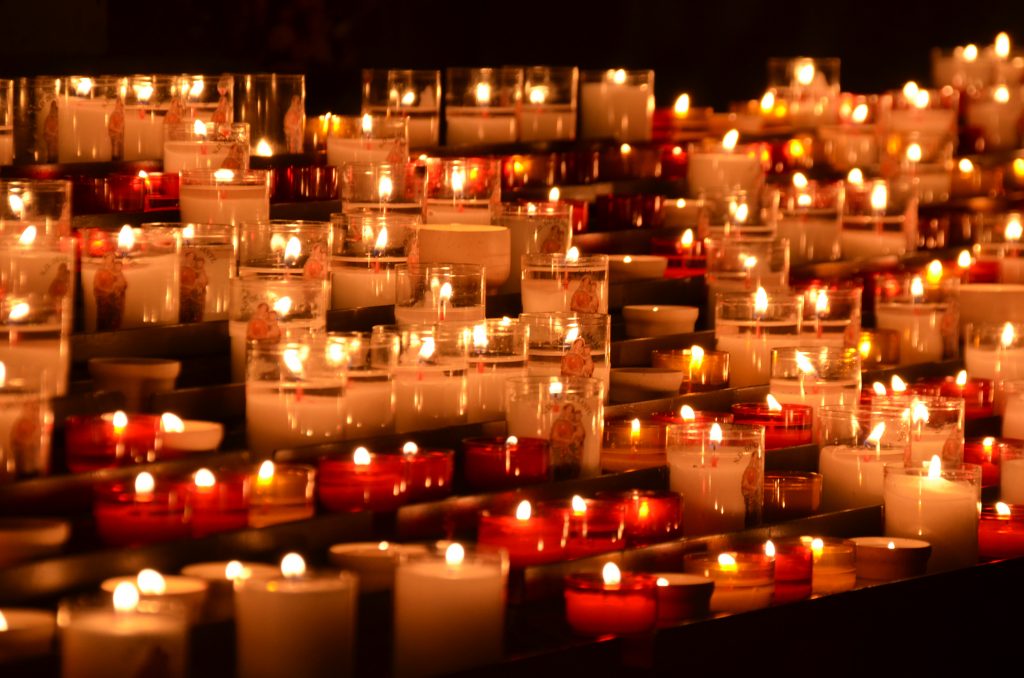In this week’s Diary of a Social Worker, Sreepriya Menon shares an extremely personal anecdote to illustrate the process of grieving. Many of us have experienced loss in 2016. Read on for more information on how to tackle this complicated and emotional experience.
#TheDiaryOfASocialWorker – 12
Albus Dumbledore famously said, “Death is but the next great adventure to the well-trained mind.”
But for the people who are left behind – the survivors of loss – the adventure is not the good kind. The feelings and turmoil evoked by the passing of a loved one are not easy to explain or understand. Loss, mourning and grief do not only revolve around the person who has passed away, but also what that person meant to the survivor. The ones we mourn hold special meaning to us after death because suddenly we are faced with the reality of living life without them and the possibility of interacting with them ever again.
The Process Of Accepting Grief
There is a beautiful story about a grieving mother who went to Buddha and begged him to bring her young son back from the dead. The enlightened one tells her that he will help her if she succeeds in obtaining a spoonful of oil from a house where no one has died. The mother goes from house to house, all through the entire village, but is unable to get the oil since every house had suffered losses. She was met with a reply of, “We have oil for you, but we lost so and so – a mother, a son, a brother, a friend, an elder or the head of a family…” She then realises that death and grief are part of every living being and are a natural part of life.
There are lessons to be learnt from any life story, however, the deaths most difficult to deal with are those that are unnatural, and cut short lives before the expected age. Unresolved grief occurs when a person has not had the opportunity to experience the stages of grief. One of these models was conceptualised by Elizabeth Kubler-Ross and is most commonly used to understand grief and loss experiences. The stages, which are highlighted in the film ‘Waiting’ starring Naseeruddin Shah and Kalki Koechlin, are denial, anger, bargaining, depression and acceptance.
The Cultural Aspect Of Loss

A child who has lost his or her parents, an adolescent who has lost a sibling, an adult who has lost their partner – each of these experiences has its own complications. Our perception of self, the world, and the future are coloured by loss since it is such a powerful emotion. To reach acceptance, people must undergo a tedious journey with a lot of back and forth across the stages of grief.
Our cultural rituals and beliefs also play a huge role in how we grieve. Some communities believe in celebrating death with dance, which might be a very insulting idea to others. Similarly, religious beliefs around how to dispose of the mortal remains of a loved one might not be very soothing to an individual’s own belief system.
These days family systems are dissolving, distance is playing a role in how we relate to each other, and how we grieve individually as well as in a family unit. The expression of grief also is a complex event since it is influenced by age, gender, culture and intimacy to the person who has passed away. Mythological and contemporary stories, songs and writing help us construct our own meaning to the significant event.
I remember how much the film ‘The Lion King’ influenced my childhood experience of losing a classmate. Our memories of mourning and expressing sadness and frustration at the consequent events are something we will carry with us until our own deaths, and it adds to our stories and relationships.
Finding Comfort And Strength

I grieved my cousin with the help of Harry Potter. To me, he was the person who taught me to read, to appreciate language, the theatre, and stories. It was at his house that I read the series and started writing poetry. When he passed away, I made several other relationships solely on the basis of shared loss and it became part of my core strength, which helped me empathise with others who might have experienced similar pain in their lives.
Remembering how others mentioned his name, revisiting places where we had spent time together, and meeting his family after the event – these are things I am still struggling with. We start looking for ways to keep that person alive, to keep the grief contained by not mentioning them or by becoming angry at God or life for taking them away.
Depression is the stage where everything seems stagnant and miserable. The weight of depression is almost as real as a physical burden, and the related effects it has on your life are not easily recognisable by people who have handled the same event differently.
Your sleep and appetite are disturbed, beliefs and ideas change, the way we interact might change – it’s a lot to process. A child may become very aggressive or scared as a result of loss, they might blame themselves or others for the passing of someone.
In the case of suicides, the tragedy is even larger because the guilt of being alive burrows into the people closest to the deceased. They might revisit every single word that was said or left unsaid to their loved one, and believe that if they could have spoken or done something differently such an eventuality would not have occurred.
Spiritual practices might help some and talking to a counsellor might help others. There is no right way to grieve. If you find yourself unable to bear the pain of grieving or mourning, do not hesitate to seek help and share your emotional burden. Communal activities are helpful to promote understanding and shared experiences. They are also a good way to distract yourself from your pain.
A friend of mine completely reconstructed his life after the death of his loved ones. When he was opposed and challenged by his family, he decided to become independent and worked harder than ever for the sake of his life and dreams. We may be broken but pieces of us still love and live far beyond where death can take us. Here is a poem dedicated to broken things:
Broken things are not beautiful
They are not nice or pleasant or calm and collected
Broken things will erupt; burn up lifelong trust like fiendfyre.
Broken things will lose their magic, won’t mend themselves.
There is nothing pure about broken things
They collect dust like the cobwebs of memories in the cupboard under the stairs.
About the time when things were whole, but were they ever whole?
Broken things will swear forbidden curses, and further breakdown
They will kick and scream and never go down the garbage chute quietly
Yet broken things will be kept locked sometimes, Gringotts won’t take them
A broken locket on a faded chain, the broken shards of a mirror used to look for a familiar face long gone,
A steady, broken friend who speaks without a voice, but has a language of its own.
Few broken flowers smelling of history
A few broken prayers you collected on a rock by the sea
A few broken songs which were sung off key in the rains with friends
Okay, maybe broken things are beautiful
They might be beyond magical repair but they’re not dead.
Liked reading this? Then you might also like to read about Beyond Self: Exploring Spirituality And Mental Health.
If there’s any story that needs to be told, we will tell it. Write to us at contact@knowyourstar.com with your story lead, or contact us on Facebook or Twitter.